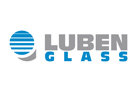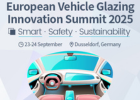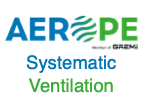AGC (AGC Inc., Headquarters: Tokyo; President: Yoshinori Hirai), a world-leading manufacturer of glass, chemicals, and high-tech materials, has announced that it has succeeded for the first time in Japan in a demonstration test to recycle cover glass for solar panels into float glass. With the success of this test, following the test for recycling into figured glass announced in November 2023, AGC expects that cover glass can be used to make float glass, which has been considered technically difficult to achieve.
The test was conducted on March 18 at the AGC Kashima Plant's float glass production furnace. Approximately 5 tons of cover glass used in this test was refined and supplied using the low-temperature thermal decomposition technology of Tokuyama Corporation (Head Office: Tokyo).
The service life of solar panels is estimated at 20-30 years, and hundreds of thousands of tons of panels are expected to be disposed of annually starting in the late 2030s. Cover glass accounts for approximately 60% of the total weight, and there are concerns about the serious environmental impact of disposing of it in landfills as industrial waste. Recycling cover glass into float glass has been challenging due to the presence of components that enhance glass transmission. With the success of this test, it is expected that float glass, which has a high production volume, will serve as a suitable outlet for the horizontal recycling of cover glass. AGC is actively working to conserve*1 raw materials derived from natural resources, such as silica sand and soda ash, and to reduce greenhouse gas emissions in its production processes through recycling initiatives*2.
In its medium-term management plan, AGC plus-2026 , the AGC Group has defined "three social values" to be created through its products and technologies. In the "Blue planet" value, the Group contributes to the sustainability of the global environment by reducing the environmental impact of its products, from the sourcing of raw materials to their use by customers. The Group will continue to create value for society by accelerating the efficient use of resources.

























